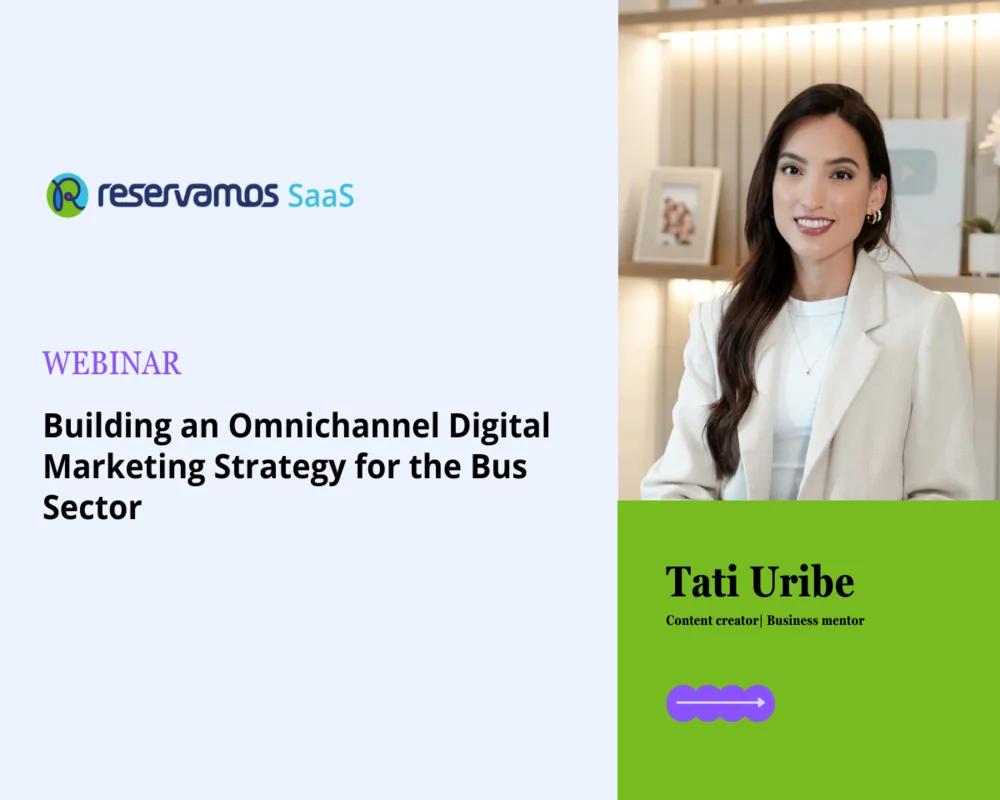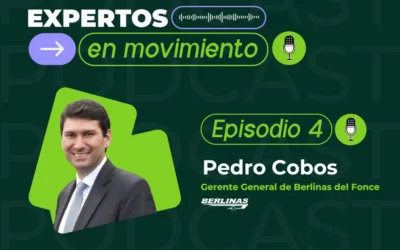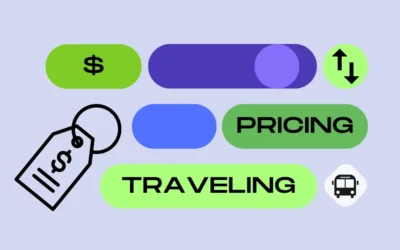Learn how to develop an omnichannel strategy in the bus sector with key insights on digital marketing and mobile trends.
On August 15th, we held the webinar “Building an Omnichannel Digital Marketing Strategy for the Bus Sector,” led by Tati Uribe, a social communicator and journalist specializing in neuro-sales and the psychology of success.
Tati provided a detailed and practical explanation of how companies in the bus sector can adapt to current digital marketing trends, emphasizing the importance of a well-founded omnichannel strategy.
Below, we present the key points that Tati Uribe shared during the webinar, to help your bus company develop an omnichannel marketing strategy that meets your business needs. Get comfortable and dive into this marketing journey.
The Importance of an Omnichannel Marketing Strategy
Often, for marketing managers heads of commercial departments, or marketing coordinators, it can be overwhelming to maintain a brand presence across multiple channels.
Diversifying the channels to communicate what a company offers is undoubtedly important. However, during her talk, Tati emphasized the relevance of having a solid digital strategy, for example, on just one social network, rather than being present on different channels without a plan well-aligned with the potential customer.
This approach allows companies to build a strong foundation that will enable them to expand coherently and effectively to other channels. Why is it necessary to strengthen digital channel presence? Recent trends show that more users prefer to purchase tickets using a mobile device.
Mobile Usage in the Bus Sector
Tati shared important statistics: approximately 70% of searches in the bus sector are conducted through mobile devices. This trend underscores the importance of having digital booking platforms that are easy to use and mobile-friendly.
Tati emphasized that the mobile user experience is crucial since most physical purchases are also shifting to smartphones. This implies optimizing offers, prices, and action buttons specifically for the mobile environment.
Relevance of User-Generated Content (UGC)
A highlighted topic in the presentation was the crucial role of reviews in marketing strategy. Tati described reviews as the new “digital word of mouth,” highlighting their impact on brand perception and consumer purchasing decisions.
Additionally, she mentioned that authentic and omnichannel-visible reviews are especially important in a sector where many companies offer similar services, making them a key differentiator.
In this regard, Tati highlighted the growing trend of User-Generated Content (UGC). This type of content is more organic and authentic than influencer marketing and plays a crucial role in omnichannel strategies.
We came from a strong wave of hiring influencers, but now all the novelty is in user-generated content. Very organic content for social platforms that helps the omnichannel strategy. This content serves for reviews on our website about how the experience was. These are reviews that are not manipulated and genuinely share the experience. It will also serve us in creating ads.- Tati Uribe, a specialist in neuro-sales and psychology of success.
UGC not only nourishes social platforms with genuine content but also has a significant impact on ad effectiveness. According to Tati, using UGC-based ads can increase conversion rates by up to 85%, as consumers prefer to interact with content created by other users rather than corporate messages.
Marketing Strategies: Organic vs. Paid
Another relevant point was the difference between organic and paid marketing strategies on social media. Tati explained that organic growth, though slower, is more solid and scalable in the long term.
However, paid strategies offer an opportunity to boost platforms and achieve goals more quickly. The key, according to Tati, is finding a balance between the two, using organic content to nurture the brand’s narrative and complementing it with strategic ads that amplify its reach.
I want us to understand very well how this dynamic between paid marketing and organic marketing works. If I find a new person and add them to the sales funnel through a paid marketing strategy but don’t have an organic marketing strategy to support it, the acquisition cost will be very high. – Tati Uribe, a specialist in neuro-sales and psychology of success.
Tati emphasized that companies must redefine and give a new direction to the bus sector. While it is a commodity service, it is not merely transactional. She proposed that organic marketing strategies in the bus sector can contain all the emotion and identity needed to achieve brand differentiation, making it more attractive to consumers.
We must have a presence on social networks, and that presence on social networks cannot be with content where I am simply sharing the graphic post of the route and how we lowered prices from Cali to Medellin or how we lowered prices from Mexico City to Puebla. We can’t just do that. We need to start telling stories through the social platforms we have. – Tati Uribe, a specialist in neuro-sales and psychology of success.
Brand Presence in the Bus Sector
Another topic addressed in the webinar was the lack of strong positioning in the bus sector, especially compared to other markets, such as the European one. Here, Tati pointed out that, in Europe, the bus is seen as an ideal way to explore and travel to places, whereas in Latin America, the focus is more on offers and prices.
She encouraged bus companies to differentiate themselves by competing on price and creating a brand experience that accompanies the consumer throughout their journey, from discovery to purchase and travel experience.
Optimization of Advertising Investment
Finally, Tati addressed the importance of continuous optimization of advertising campaigns. She noted that during peak seasons, such as travel seasons, advertising costs tend to increase due to competition.
She suggested that a proper segmentation strategy and constant optimization of ads at the creative and landing page levels can maximize return on investment.
Tati emphasized the need to adjust ads based on their performance, whether by modifying texts, images, or videos, to ensure that advertising investment always aligns with the company’s objectives.
In summary, Tati Uribe’s webinar offered a practical and strategic guide for bus sector companies looking to improve their digital marketing presence. From the importance of an optimized mobile strategy to the power of UGC and the need for a balanced combination of organic and paid strategies, Tati provided valuable recommendations for companies to stand out in an increasingly competitive market.




